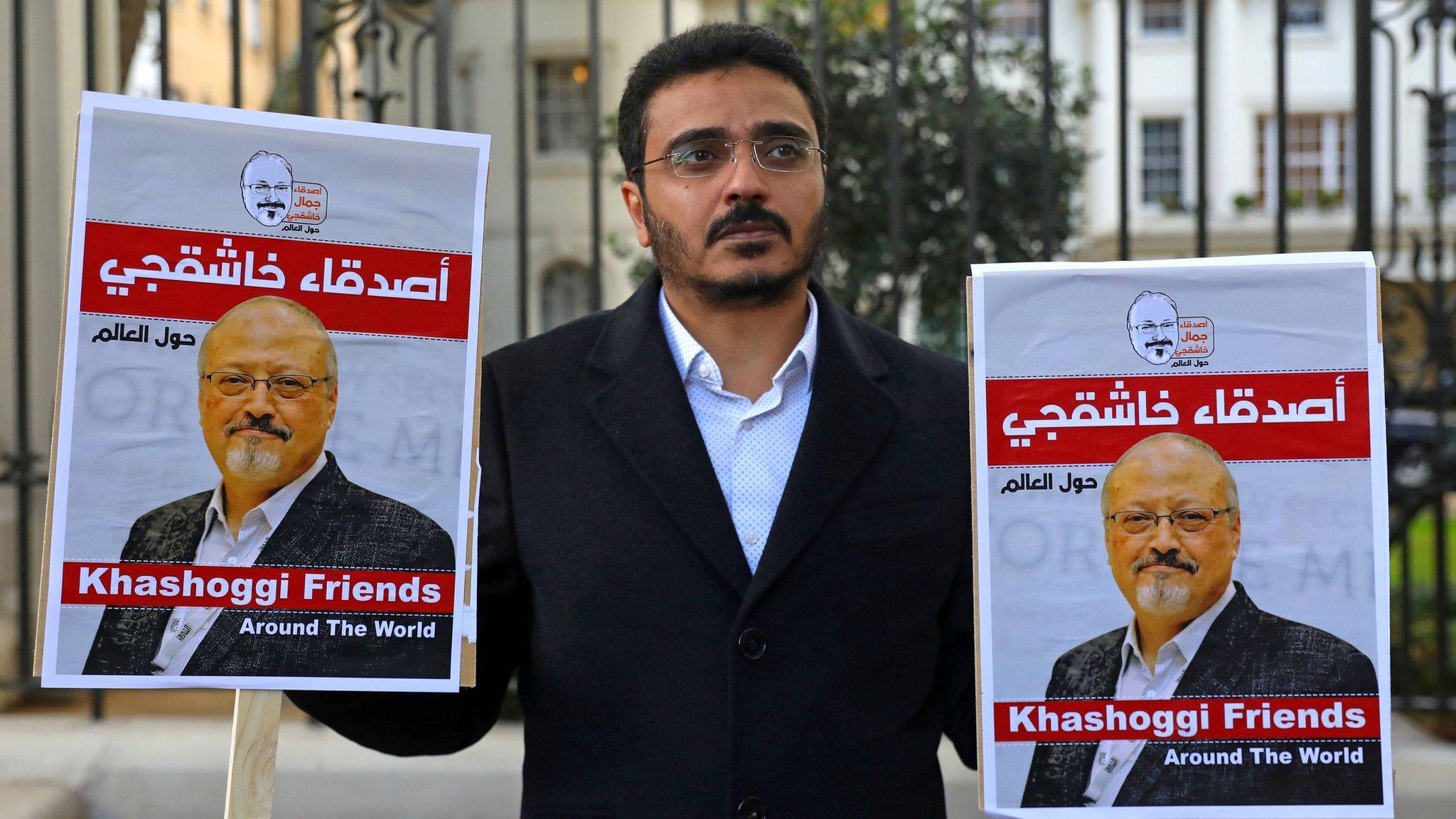Khashoggi murder: Calls to remove Saudi crown prince 'a red line'
- Published
Saudi Foreign Minister Adel al-Jubeir: "All we hear is leaks... show us the evidence."
Calls to remove Saudi Crown Prince Mohammed bin Salman are a "red line", the Saudi foreign minister has told the BBC, amid a global outcry over the murder of journalist Jamal Khashoggi.
Adel al-Jubeir said the prince had not been involved in the 2 October killing in the Saudi consulate in Istanbul.
This comes a day after the US Congress demanded an investigation into whether the prince had a role in the murder.
President Donald Trump has defended US ties with Saudi Arabia.
In a statement on Tuesday, Mr Trump acknowledged that the crown prince "could very well" have known about Khashoggi's brutal murder, adding: "Maybe he did and maybe he didn't!"
What did the Saudi foreign minister say?
Speaking to the BBC's chief international correspondent Lyse Doucet in Riyadh, Mr al-Jubeir said: "In Saudi Arabia our leadership is a red line. The custodian of the two holy mosques [King Salman] and the Crown Prince (Mohammed bin Salman) are a red line.
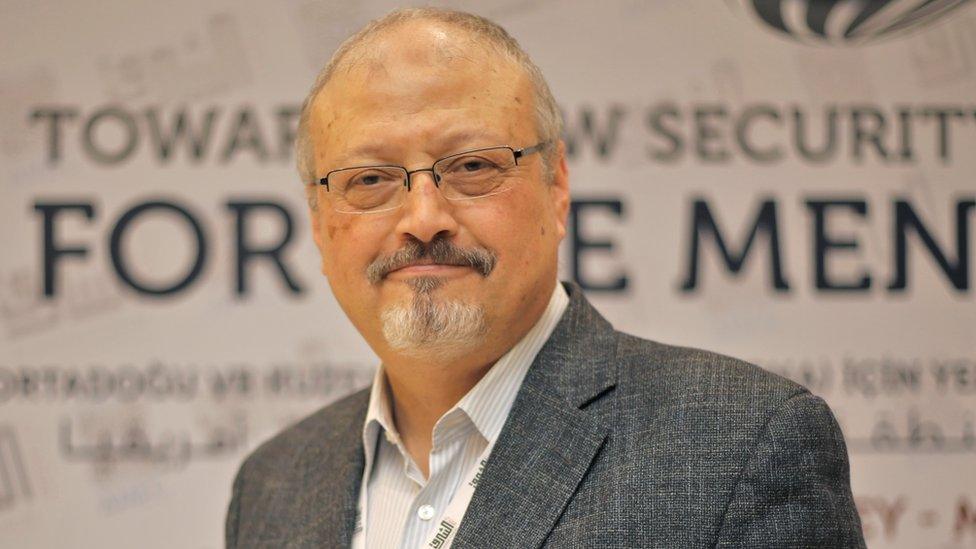
Jamal Khashoggi was killed in the Saudi consulate in Istanbul on 2 October
"They represent every Saudi citizen and every Saudi citizen represents them. And we will not tolerate any discussion of anything that is disparaging towards our monarch or our crown prince."
Mr al-Jubeir reiterated that the crown prince had not been involved in the murder.
"We have made that very clear. We have investigations ongoing and we will punish the individuals who are responsible for this," he said.
It has been widely reported in the US media that the CIA believes the grisly killing could only have happened on the crown prince's order.
But Mr al-Jubeir disputed those reports, saying the killing was a "rogue operation" by intelligence agents.
Why do Trump's Saudi job numbers keep growing?
And the Saudi minister again urged Turkey to provide all the evidence about the killing and stop leaking information.
He also said any potential US sanctions against Saudi Arabia would be short-sighted.
What about the investigation demand from the US Congress?
On Tuesday, Republican Senator Bob Corker and Democrat Bob Menendez issued a statement on behalf of the Senate Foreign Relations Committee.
In it they called on Mr Trump to focus a second investigation specifically on the crown prince so as to "determine whether a foreign person is responsible for an extrajudicial killing, torture or other gross violation" of human rights.
Allow X content?
This article contains content provided by X. We ask for your permission before anything is loaded, as they may be using cookies and other technologies. You may want to read X’s cookie policy, external and privacy policy, external before accepting. To view this content choose ‘accept and continue’.

The request, issued under the Global Magnitsky Human Rights Accountability Act, requires a response within 120 days.
What did Trump's earlier statement say?
"The world is a very dangerous place!" Mr Trump said in his statement, before holding up Saudi Arabia as an ally of the US against Iran.
The kingdom spent "billions of dollars in leading the fight against Radical Islamic Terrorism" whereas Iran has "killed many Americans and other innocent people throughout the Middle East".
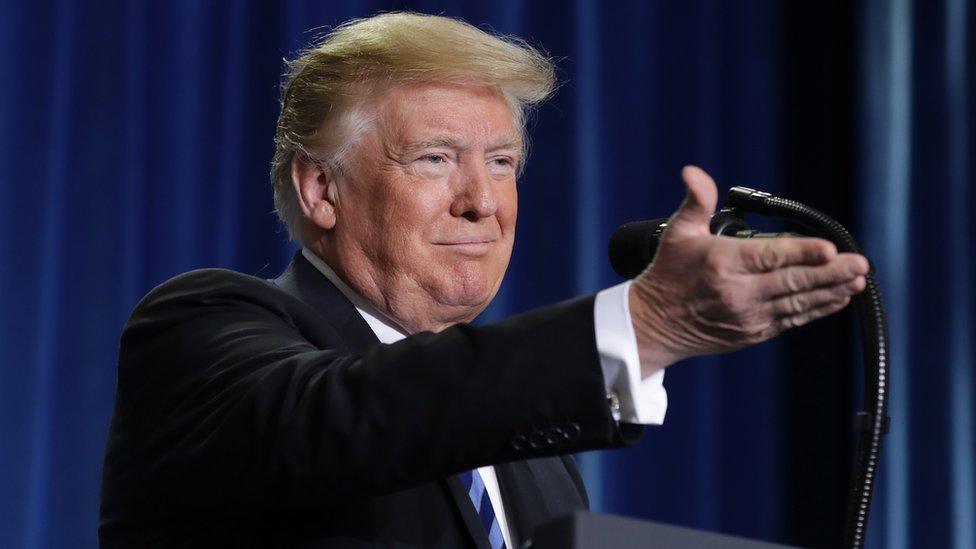
President Trump called Saudi Arabia a "steadfast partner"
It also stressed Saudi investment pledges and arms purchases. "If we foolishly cancel these contracts, Russia and China would be the enormous beneficiaries," it added.
While admitting the murder of Jamal Khashoggi was "terrible", Mr Trump wrote that "we may never know all of the facts" about his death.
"The United States intends to remain a steadfast partner of Saudi Arabia to ensure the interests of our country, Israel and all other partners in the region."
Mr Trump later said he would meet Mohammed bin Salman at a G20 meeting in Argentina next week if the crown prince attended.
- Published21 November 2018
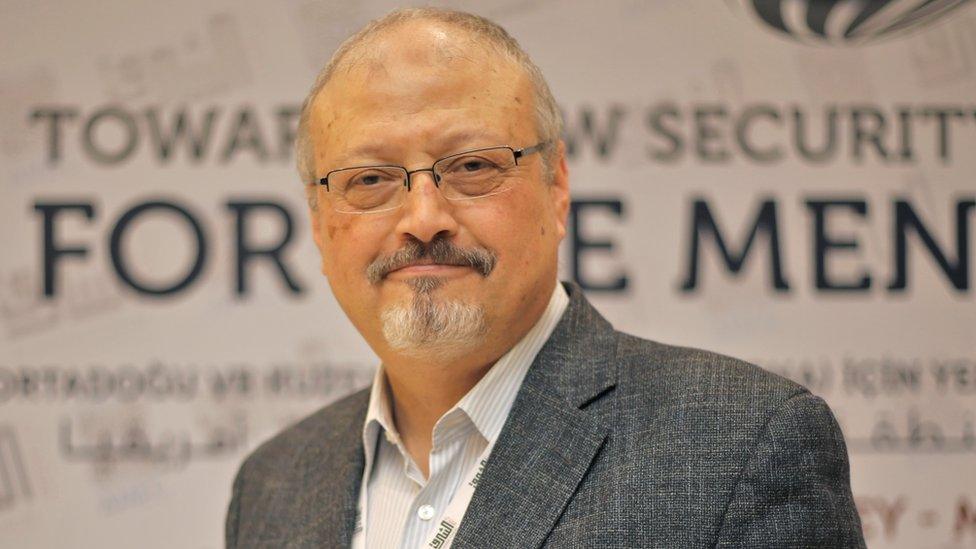
- Published18 November 2018
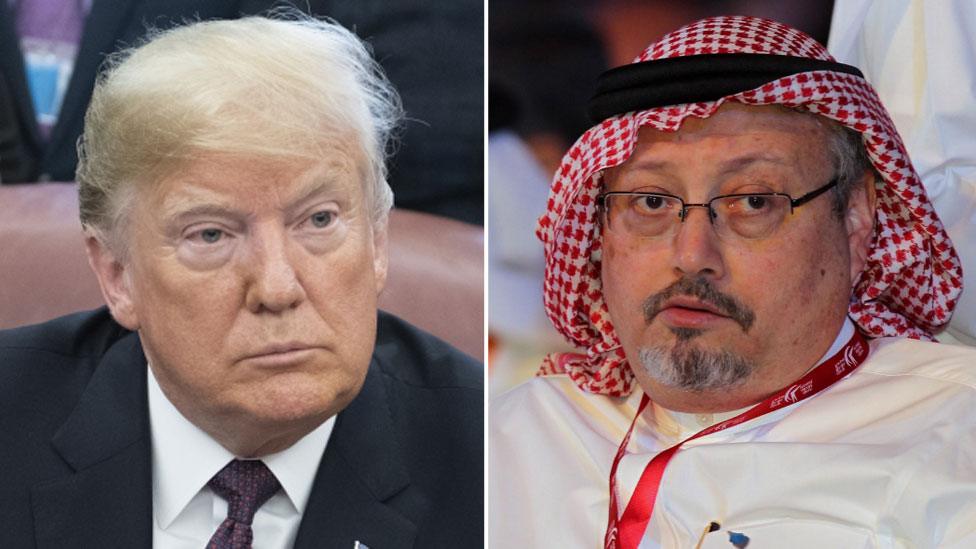
- Published17 November 2018
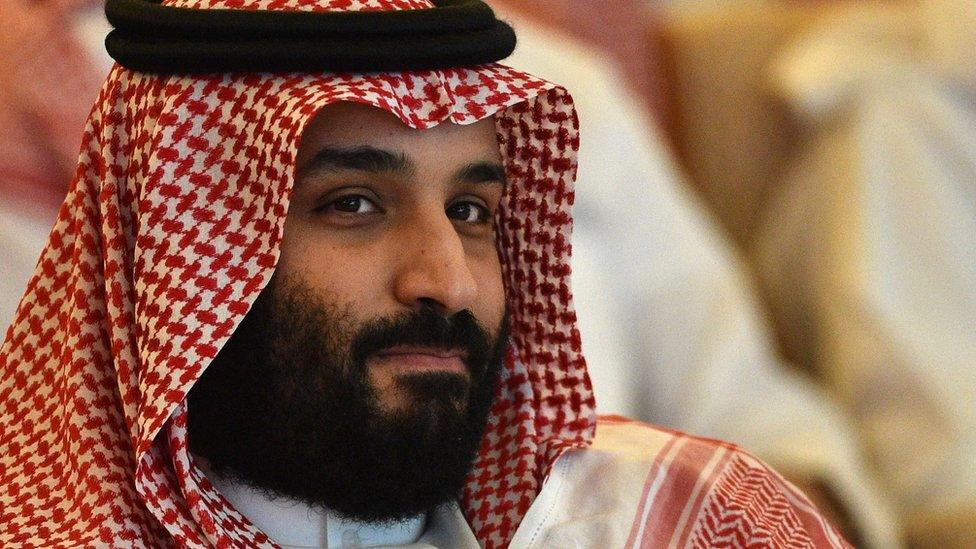
- Published19 November 2018
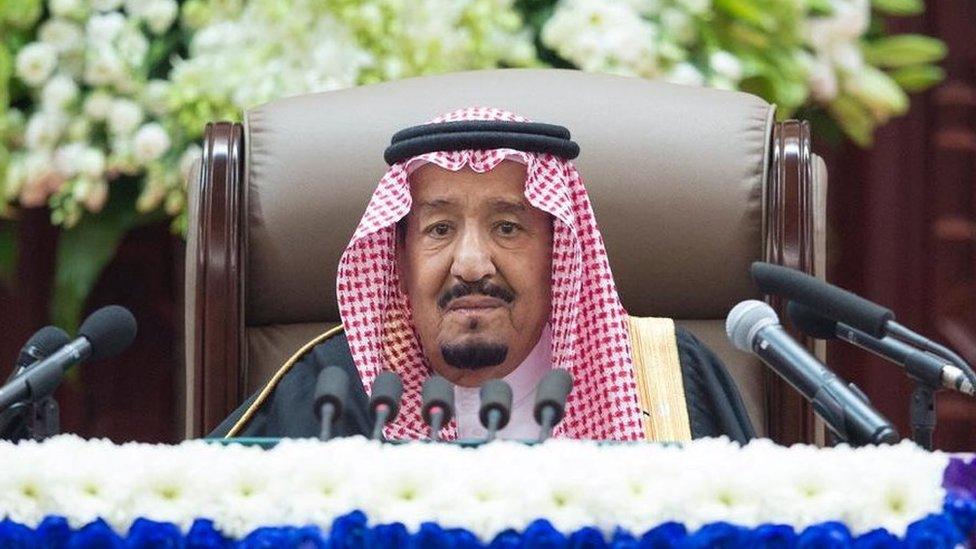
- Published15 November 2018
